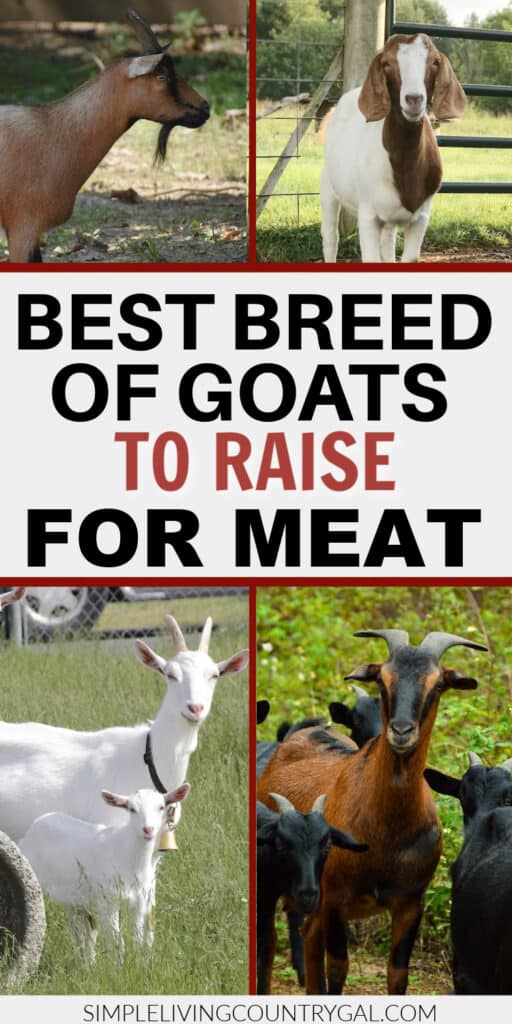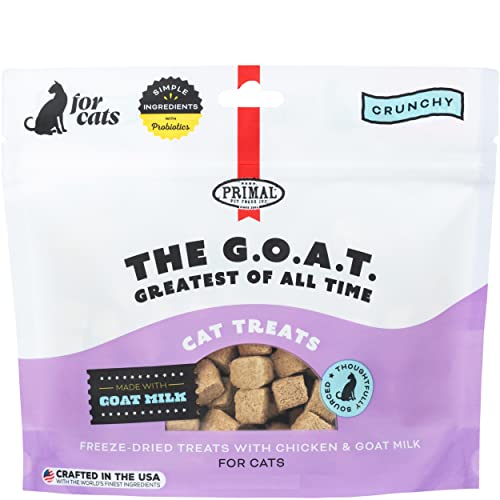meat goat breeds
This list of meat goat breeds will help you choose the best picks for your location and setup. From size to temperament each breed of goat comes with it’s pros and cons.
Bookmark this goat breeds list so you can refer to it anytime you want to add more goats to your homestead.
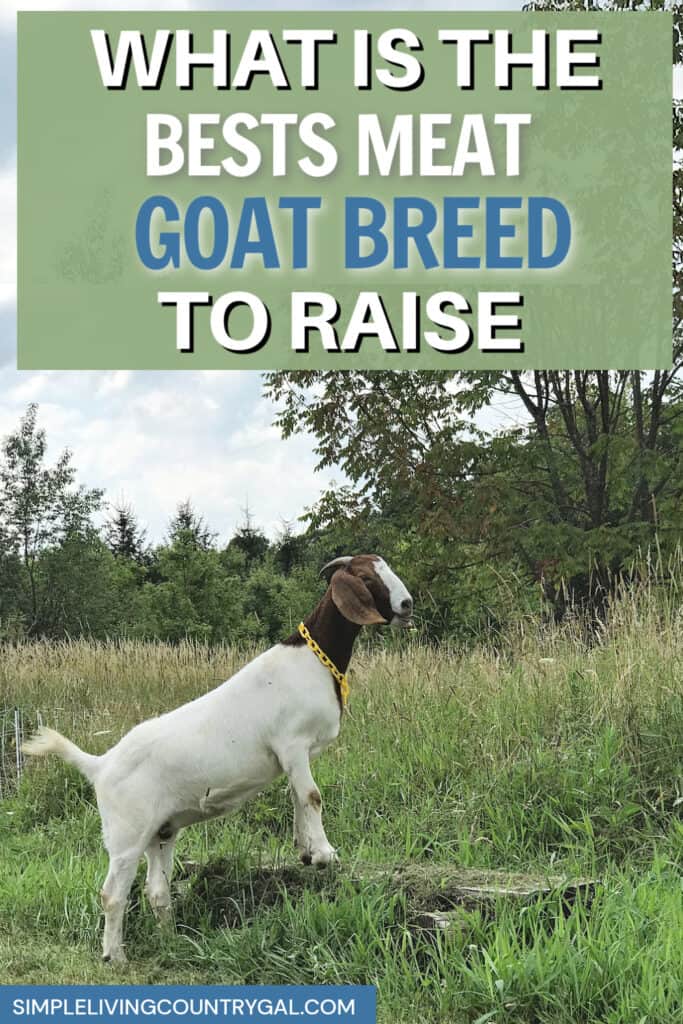
Over the years I have raised many different dairy goat breeds on my midlife homestead. And for a long time dairy was the best fit for us.
Later we learned that meat breeds are also popular especially if you are looking to make an income with your homestead. You can either raise full meat breeds or raise a dairy and meat cross breed to round out your herd.
Can you make money raising meat goats?
Yes, it is possible to make money raising meat goats. With more and more people looking for ethically-raised meats, there is an increased demand for goat meat. This will give you a great way to make money on your homestead by raising livestock.
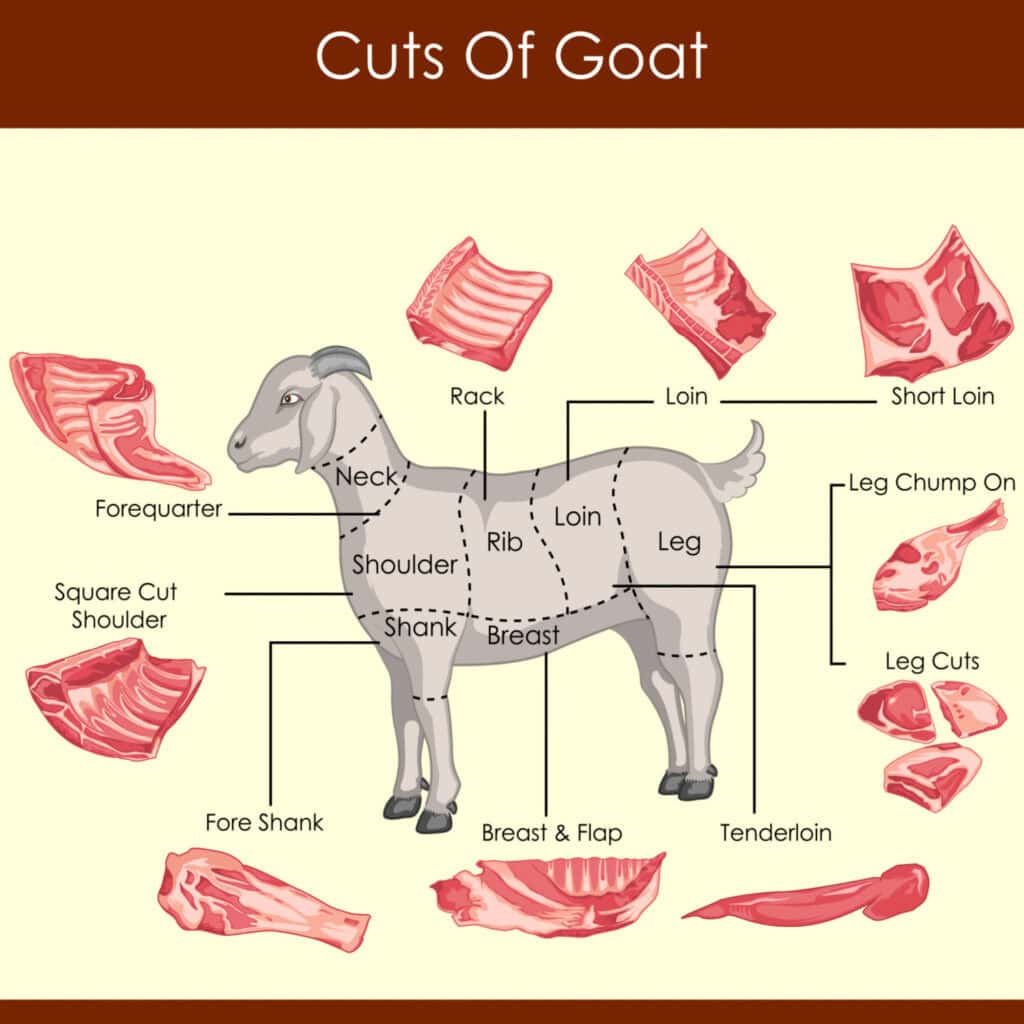
Meat Goat Breeds
Compared to dairy, the list of meat goat breeds is relatively short making it easier for you to choose the best fit for your homestead.
#1. Boer Goat
Boer goats originated in South Africa and are the most recognizable meat goats in the United States. These goats were the first goats I started out with before switching over to dairy, and later, we added them back in. I love the look of boer goats because they have pendulous ears similar to the Nubian breed.
Characteristics:
A medium-sized goat with a stalky build that is friendly and easy to train. They are hardy and do better in hot, dry climates. They have brown heads and long ears that hang down.
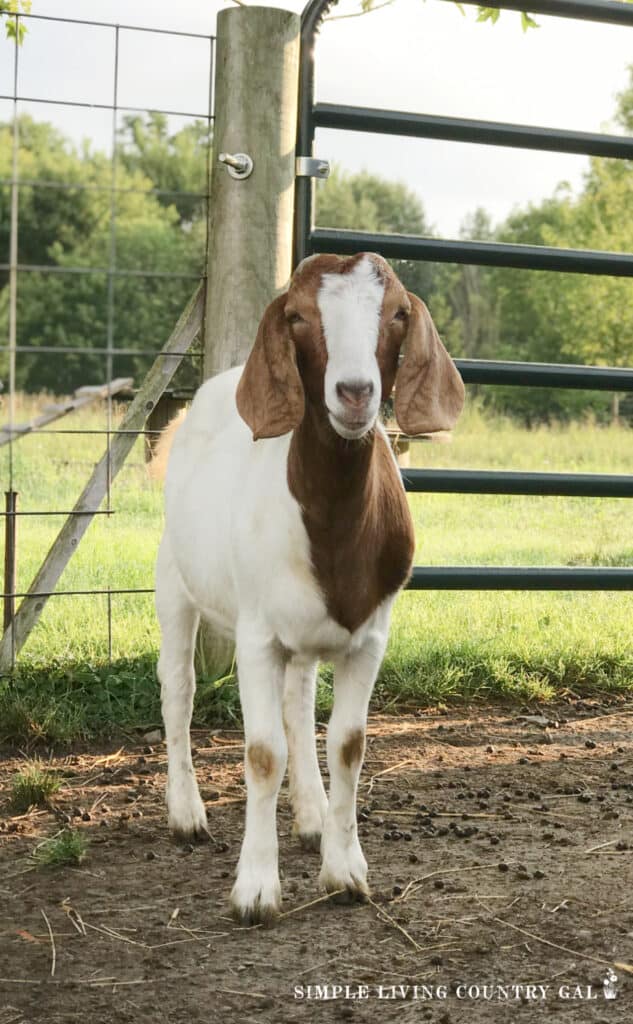
Pros of Boer Goats:
- Easy to breed with a high fertility rate.
- Docile temperament.
- Easy to train.
Cons of Boer Goats:
- Bucks can weigh up to 340 pounds making them hard to handle.
- They may be susceptible to parasites in wet areas.
Overall, Boer goats are a top pick for our location and our setup. They fit in well with our Nubian and Alpines, keeping with the herd when grazing, eating, and playing. If you can work with them early on, they will be a friendly addition to your herd.
Primal Freeze Dried Chicken Cat Treats, Made with Goat Milk The Goat Treats for Cats, 2 oz



#2. Spanish Goat
The Spanish goat originated in Spain and is a popular meat breed in the US that is often used for clearing land. They are a hardy goat that stands up well to parasites as well as different types of weather.
Characteristics:
Spanish goats are medium-sized with thick coats and airplane-like ears. If horns are left to grow, they will twist, giving a unique look.
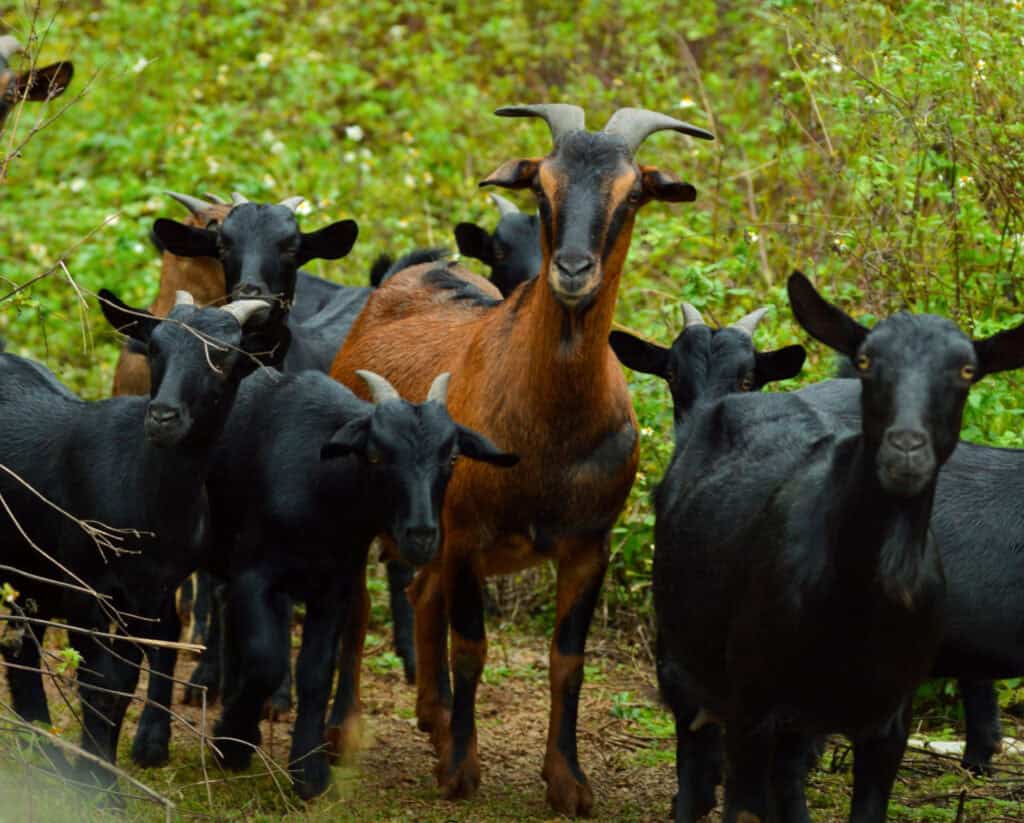
Pros of Spanish Goats:
Spanish goats are a hardy breed and will stand up well to parasites. They also tend to do well in cold weather.
Cons of Spanish Goats:
Spanish goats are “flighty,” meaning they can be hard to handle. They also do not like to be contained and will look for ways to escape pens and fences.
#3. Kiko Goat
Kiko goats are common meat goats that originated in New Zealand. They are fast growers, making them a great market meat breed.
Characteristics:
Kiko goats are commonly white and are considered a medium to large breed with bucks weighing up to 250 pounds. They have long airplane-like ears and a coarse coat of fur.
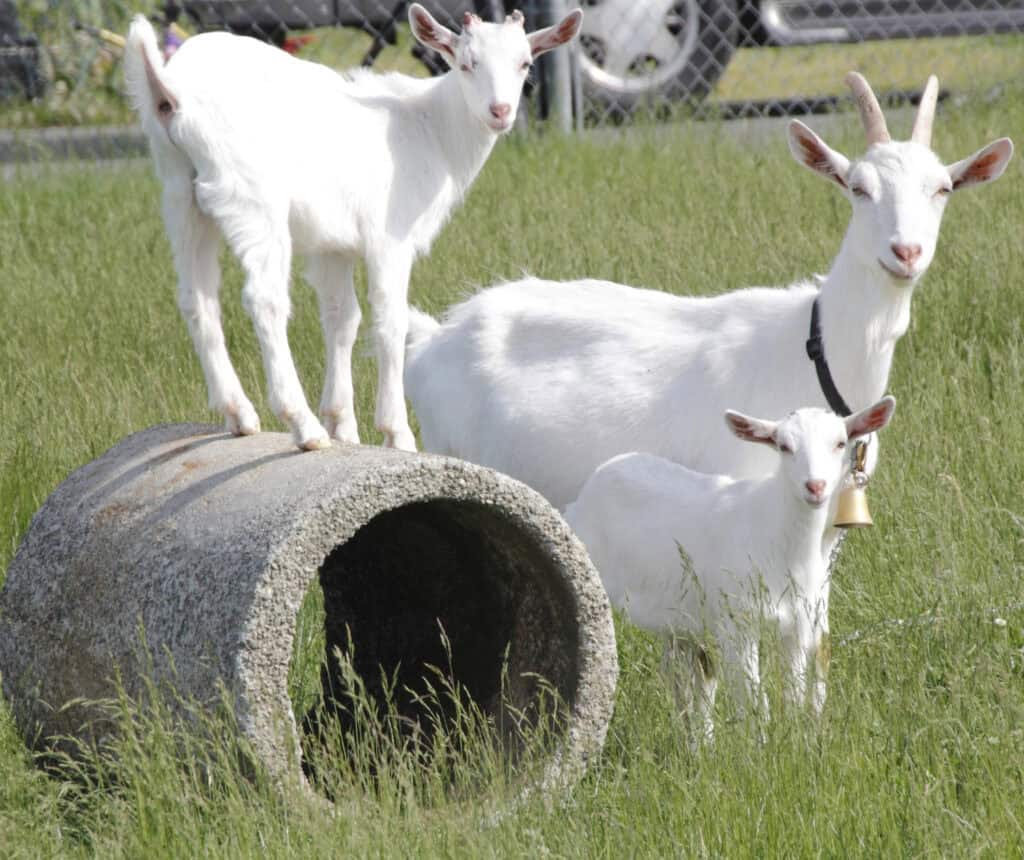
Pros of Kiko Goats:
Kiko goats are low maintenance and are very hardy towards parasites and disease. They are great mothers and have high rates of giving birth to multiples. They have a mild temperament and are easy to train.
Cons of Kiko Goats:
Kiko goats may not pack on the meat like Boer goats.
#4. Myotonic Goat
Myotonic goats, also known as Tennessee fainting goats, are American-bred goats. When startled, this breed of goat will stiffen and fall over as if it had fainted. This condition is called Myotona, which is where they get their name.
Characteristics:
Myotonic goats are medium-sized goats with a stocky build and airplane-like ears. They have muscular meats with less fat making it a tender cut.
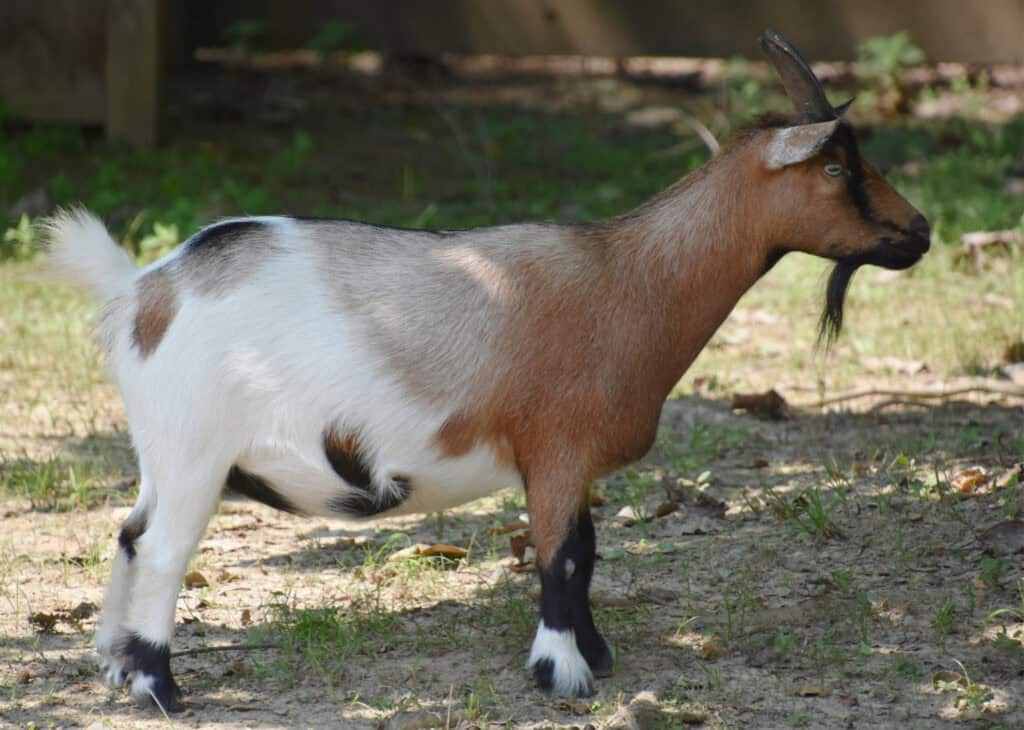
Pros of Myotonic Goats:
Myotonic goats are docile goats that are good and have a fair resistance to parasites. They are good and attentive mothers who often give birth to multiples.
Cons of Myotonic Goats:
Because they faint when startled they do not do well in areas where predators are common.
When you add livestock to your homestead or small hobby farm, breeds and characteristics matter. Start by knowing your goal for raising goats, who will be responsible for their care, and how large you plan to grow your herd.
Armed with this helpful information, you can use it to narrow down your list and finally choose a meat goat breed that works perfectly for you.
More Goat Breeds Checklists:
